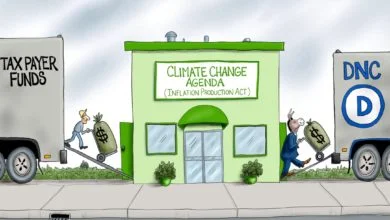U.S. Postal Service continues to hemorrhage money
The U.S. Postal Service ended the first three months of its 2012 fiscal year (Oct. 1 – Dec. 31, 2011) with a net loss of $3.3 billion. Management expects large losses to continue until the Postal Service has implemented its network re-design and down-sizing and has restructured its healthcare program. Additionally, the return to financial stability requires legislation which gives the Postal Service typical commercial freedoms, including delivery flexibility, returns over $10 billion of amounts overpaid to the Federal Government and resolves the need to prefund retiree healthcare at rates not assessed any other entity in the United States.
Stronger than expected holiday shipping activity, driven by strong growth in online merchandise sales and successful USPS marketing efforts, helped the Postal Service grow its competitive Shipping Services business in the first quarter, with revenue totaling $2.8 billion, an increase of $179 million or 7 percent over the same period last year. However, declines in First-Class and Standard Mail of $650 million were 3.7% percent of total revenue and greatly exceed the gains made in the package business. First-Class Mail declines due to electronic migration of transactions are expected to continue for the foreseeable future.
Mailing Services revenue, excluding First-Class Mail parcels, totaled $14.5 billion, a decrease of 2.9 percent. First-Class Mail continued to decline, with revenue decreasing 4.1 percent compared to the same period last year. First-Class Mail revenue has declined nearly 15 percent and volume has declined 25 percent since volume peaked in 2006. While some of the decline is attributable to economic weakness since 2007, the more significant factor is the continuing transition to electronic alternatives.
“Technology continues to have a major impact on how our customers use the mail,” said Postmaster General and CEO Patrick Donahoe. “While it has helped us grow our Shipping Services businesses, it has had a significant negative impact on some of our much larger sources of revenue, particularly First-Class Mail. Revenue from Shipping Services represents about 17 percent of total revenue and, even with continued growth, cannot fully offset the decline in First-Class Mail revenue.”
To return to profitability, Donahoe has advanced a plan to reduce annual costs by $20 billion by 2015. The plan includes continued aggressive actions to generate additional revenue and reduce operating expenses. To reach the goal, the Postal Service also needs changes in the law. “Passage of legislation is urgently needed that provides the Postal Service with the speed and flexibility needed to cut costs that are not under our control, including employee health care costs,” Donahoe said. “The changes will give the Postal Service a bright future and provide the nation with affordable and reliable delivery for generations to come.”
Other details of the first quarter results compared to the same period last year include:
- Total mail volume of 43.7 billion pieces, a 6 percent decrease.
- Operating revenue of $17.7 billion, a 1.1 percent decrease.
- Operating expenses (before prefunding of retiree health benefits and the impact of discount rate changes for worker’s compensation liability) of $17.8 billion, a 1 percent increase.
- Transportation expenses increased by $105 million, or 6.3 percent, due to rising fuel costs. The Postal Service continues to decrease controllable costs, including an 8 million decrease in work hours, or 2.8 percent. Total compensation and benefits expenses decreased by $180 million, or 1.4 percent.
The Postal Service continues to suffer from a severe lack of liquidity. “Absent significant changes in the law to allow normal commercial freedoms, the Postal Service will default on both retiree health benefits pre-payments to the federal government due this year,” said Chief Financial Officer Joe Corbett. “Even if legislation changes or eliminates the prefunding payments, we may reach our $15 billion debt ceiling in the fall of this year.”




